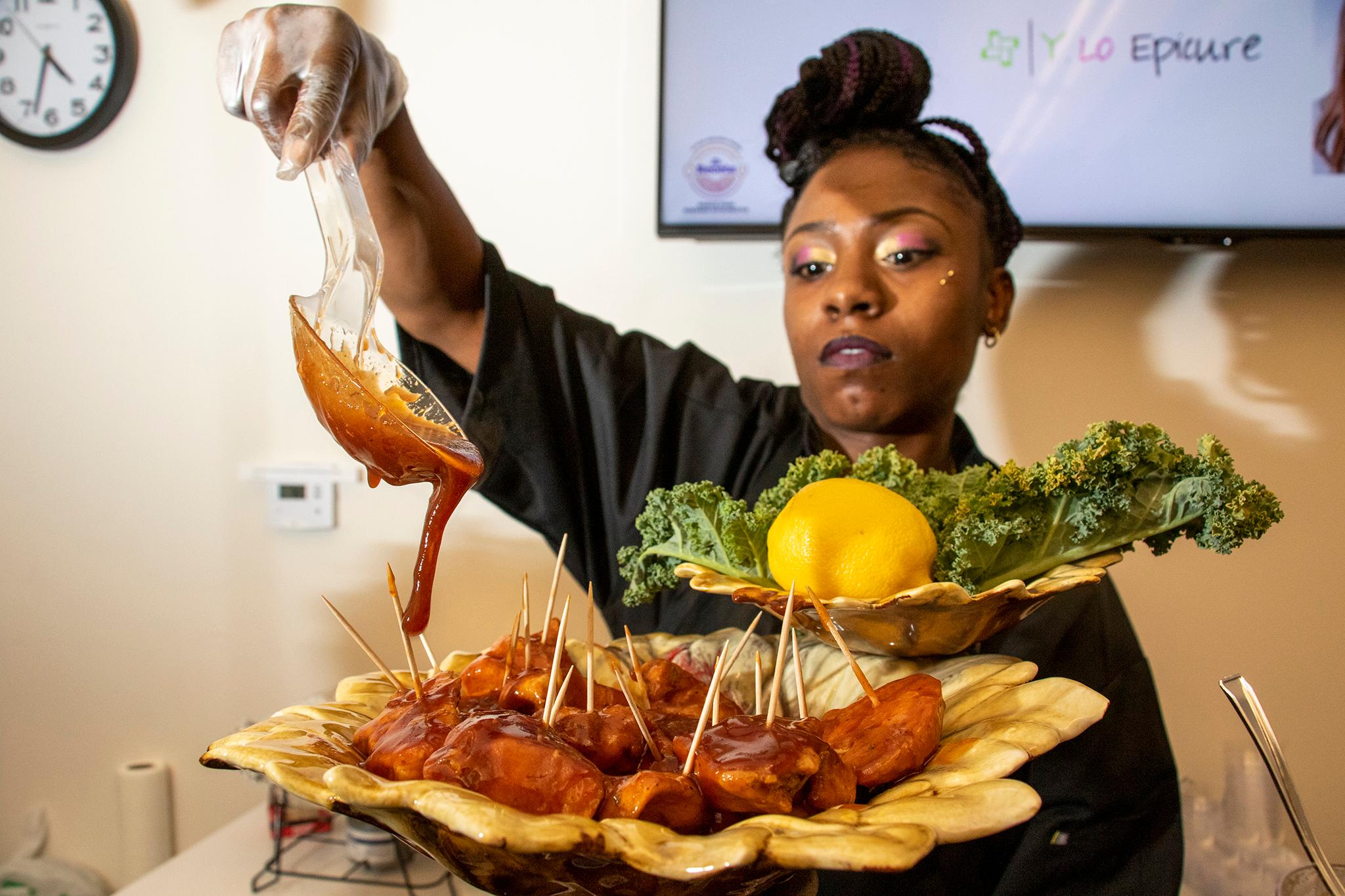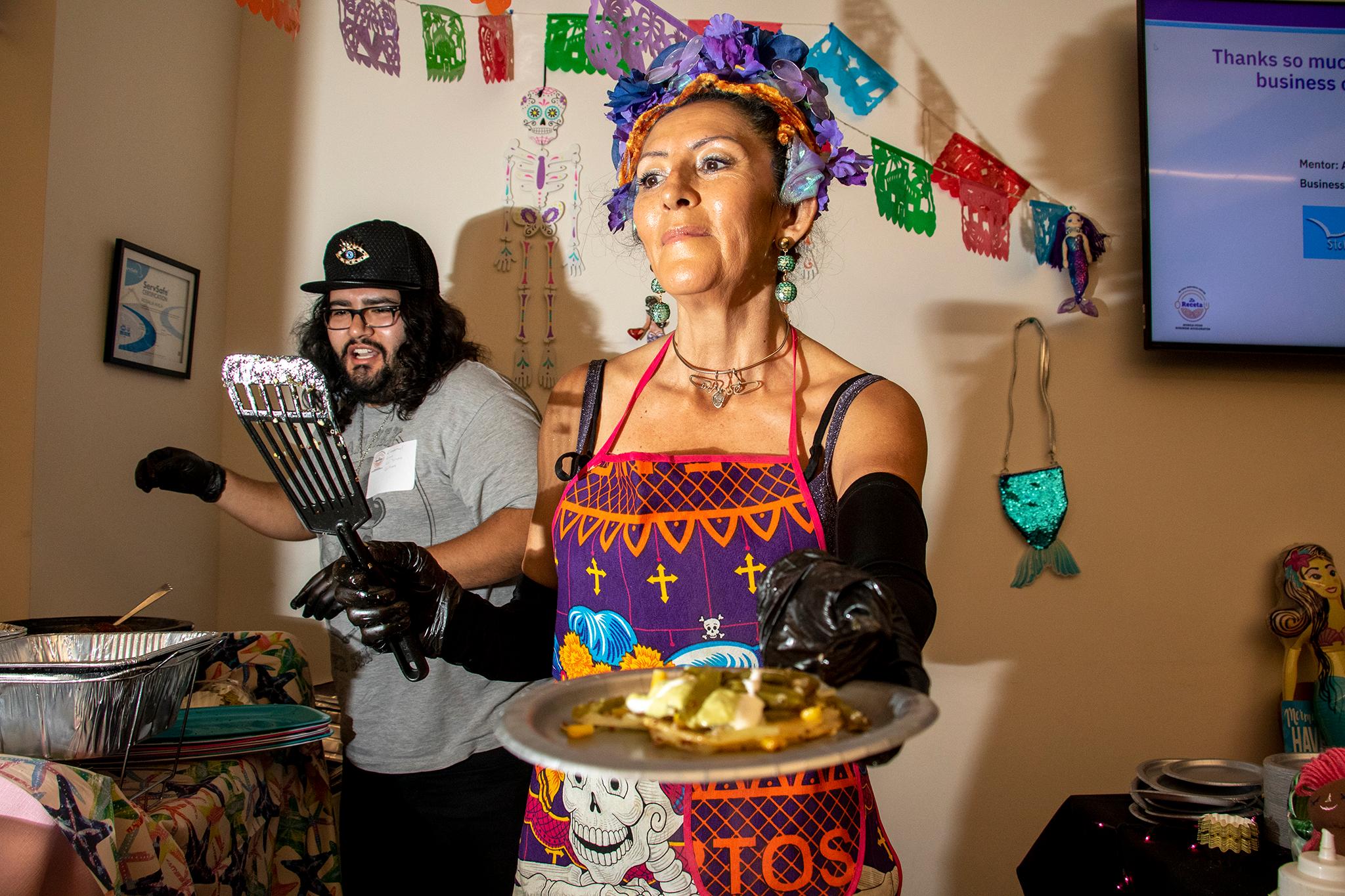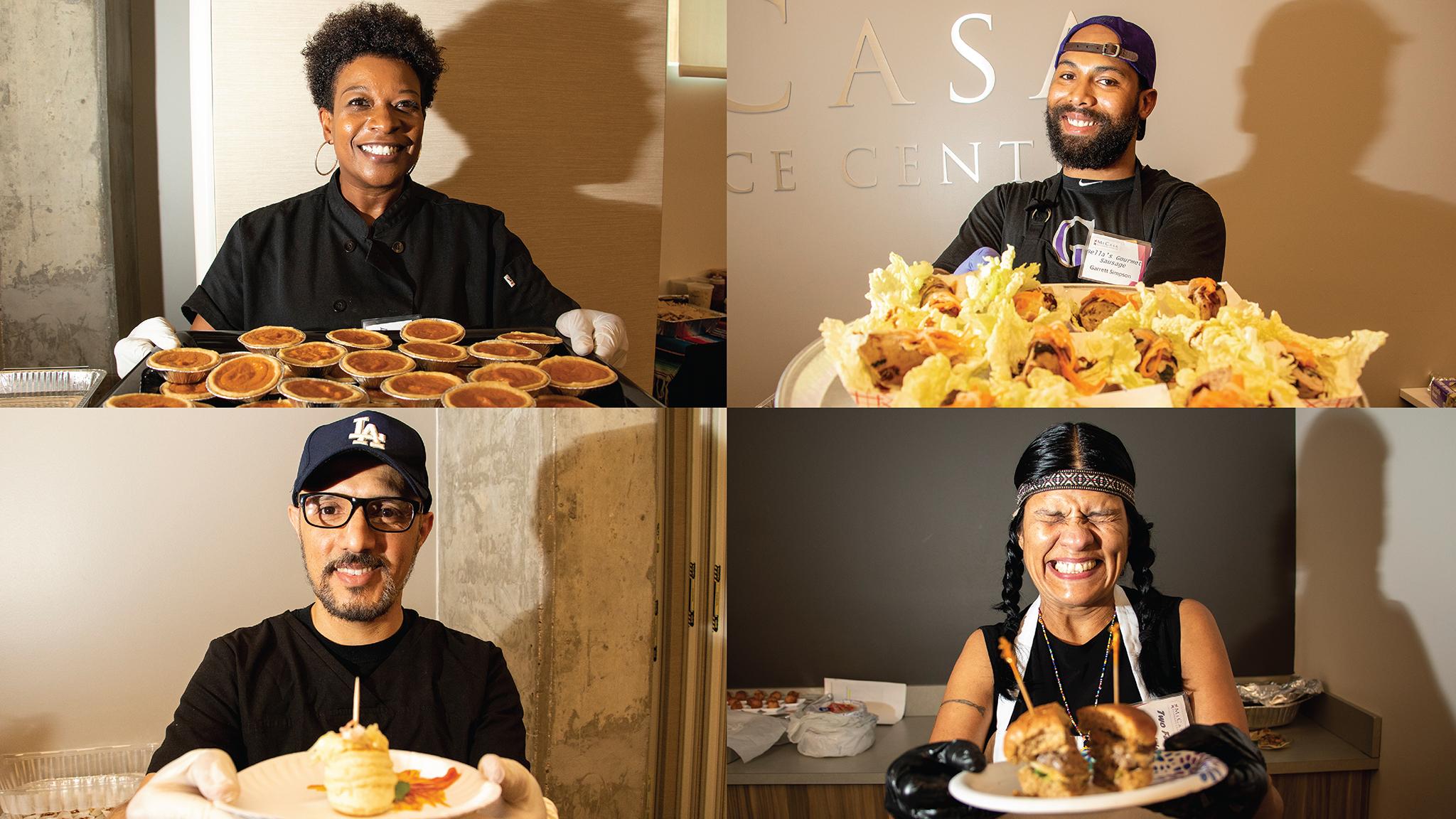It's graduation season, and Erika Rojas was headed straight from her ceremony to the job for which school had prepared her.
School in her case was the newest project of the anti-poverty nonprofit Mi Casa Resource Center: a 12-week program known as La Receta for people who want to break into the food business. Rojas's job was working for herself, serving Mexican cuisine from a truck.
In a room crowded with enthusiastic eaters and savory smells on Friday evening, Rojas and 19 other La Receta graduates offered samples at a tasting event at the Salazar Center for Family Prosperity, the West Side headquarters Mi Casa moved into last summer from Baker. After the event culminating the food accelerator program, Rojas was planning to park her food truck at an indoor soccer facility in south Denver to debut her business.
"I specialize in tacos, but more tamales," Rojas said, stressing that she made everything from scratch.
Other graduates of La Receta also spoke of developing specialties -- Ethiopian wot sauce, Moroccan shrimp soup, an African-American family recipe for sweet potato pies, Mexico City street snacks and more -- as way to stand out in a competitive industry. The program offered that tip about niche marketing along with lessons on pricing, keeping inventories and writing menus and prepared students to pass food handling tests. La Receta's trainees were mentored by business owners and professional chefs and had access to commercial kitchen space at a subsidized rate. One-on-one business consulting helped make connections to loan opportunities and clients.
"I knew nothing" about the financial aspects, Rojas said. "Now, I think I'm ready."

Some of the students had learned to cook from parents or grandparents -- Angela Ray's sweet potato pie recipe went back four generations. One, Garrett Simpson, is a graduate of the Escoffier Culinary School in Boulder.
"Culinary school was strictly about the craft," said Simpson, who called his company Bella's Gourmet Sausages after his dog. La Receta "helped me with the entrepreneurial side of it."
Mi Casa developed La Receta because it saw an opportunity in food trucks, which can feed the people working on the construction sites dotting Denver or in the offices those projects later house. Rojas said that in addition to the soccer center, she had identified a site along I-70 where she planned to set up to serve workers on the highway renovation project.
Senait Ketema hit on a plan to sell her sauce for Ethiopian style lentils and other dishes online for now. Jantier Fennel, whose menu included buttermilk battered fried chicken and black-eyed peas, was planning to cater events until she could move up to a truck, which she said would allow her "to make money everywhere."
Debbie Trujillo, corporate responsibility officer for KeyBank and a former Mi Casa board member, said food on the move -- whether the model is trucks, catering, push carts, farmers markets or online sales -- allows business people to take advantage of growing interest in cuisines that highlight multicultural Denver.
Key Bank granted Mi Casa $485,00 for three years to start La Receta.
"I remember when we were just talking about it," Trujillo said, adding the scene Friday was more than she had envisioned.
"To see the diversity. To see the excitement. To see the pride in their (graduates') eyes," Trujillo said. "It's a great day."
She said she had collected cards from all the entrepreneurs so that KeyBank could hire them for events, and hoped other companies would do the same.

Supporting entrepreneurs has been at the heart of Mi Casa since eight West Side women came together four decades ago to start what would become the nonprofit. Mi Casa provides bilingual consulting and training for people who want to start businesses as well as help for job seekers and after school programs for teens. Other programs include ESL classes and a legal clinic.
"We're helping people get to a place where they can care for their families for generations to come," said Dale Flanders, Mi Casa's chief development officer.
Elena Vasconez, Mi Casa's business development director, said while the economy is booming, some people are being left behind.
"Our population is low-income entrepreneurs and families," Vasconez said.
Two social workers who were part of the staff for La Receta stepped in when necessary to direct students to rental assistance, bus passes, child care -- whatever they needed to stay with the program, Vasconez said. Three people dropped out of La Receta, which Vasconez said was similar to the retention rate of other Mi Casa programs.

La Receta participants are asked to pay $250, though need-based scholarships are available. The $250 does not cover costs, Vasconez said, pointing out that food handling license fees Mi Casa covers for graduates are almost $200.
La Receta's next class starts in September. Next year, Vasconez hopes to offer the program in Spanish.












